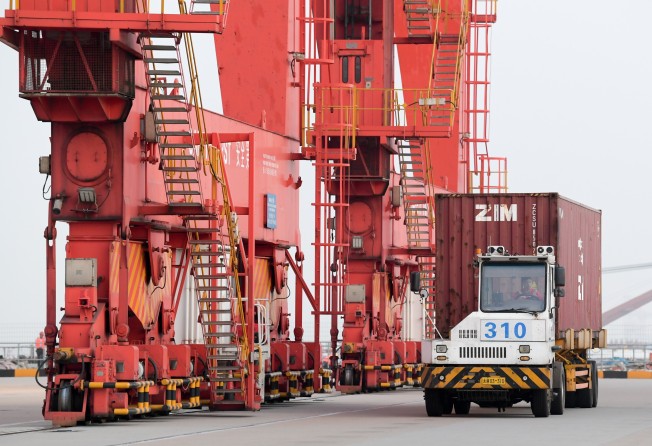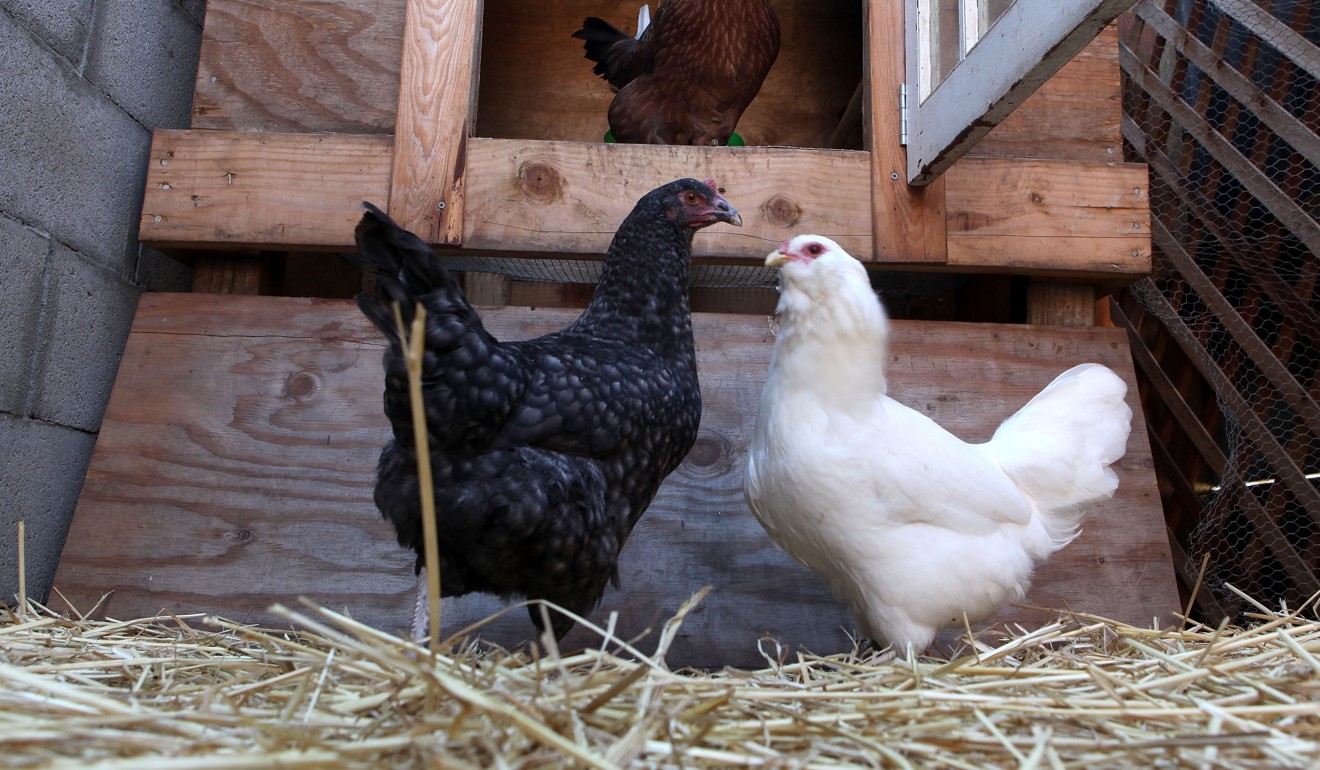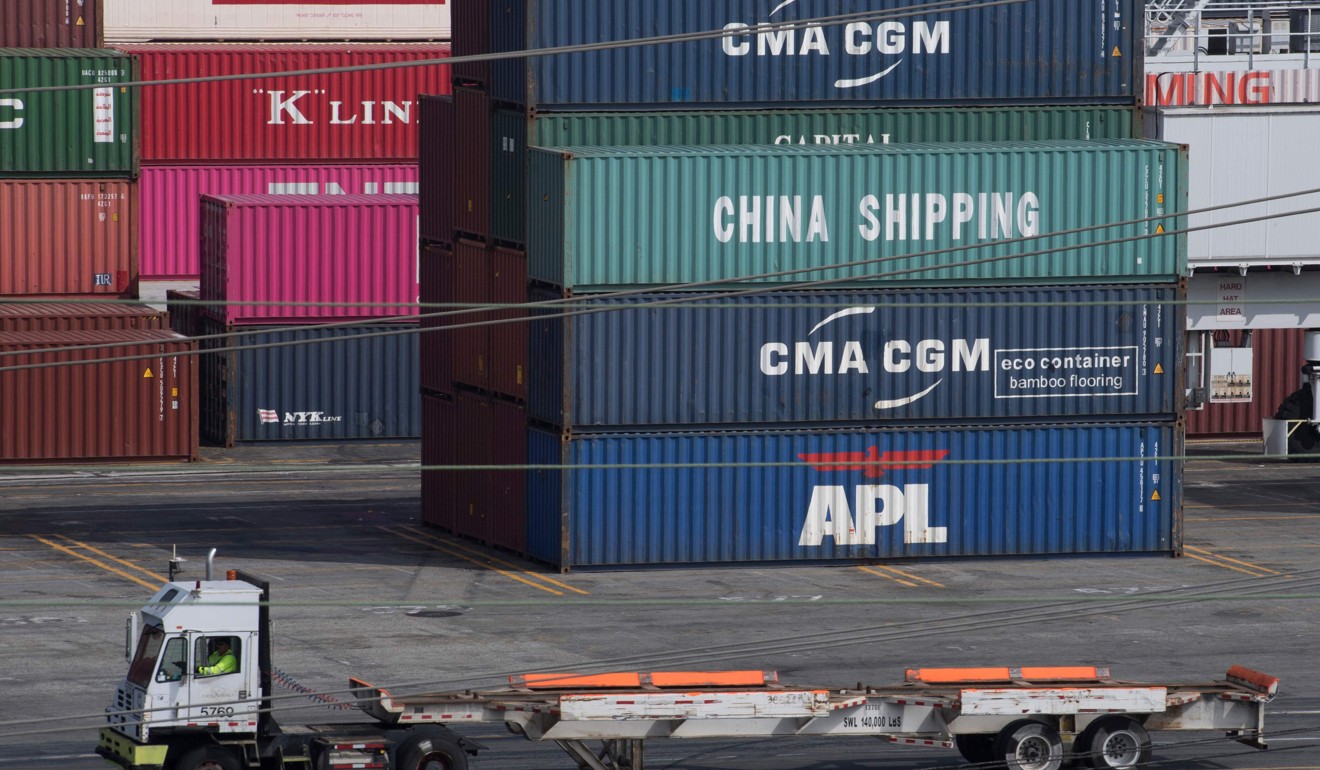China and US ‘agree to phased rollback’ of extra trade war tariffs
- Negotiators from both countries still trying to reach interim deal, Chinese Ministry of Commerce says
- Xi Jinping to visit Greece and Brazil next week but still no indication of any meeting with Donald Trump to sign deal

China and the United States have agreed to remove additional tariffs in phases once their leaders sign an interim deal towards ending a costly trade war, with both sides still working to wrap up the agreement, the Chinese Ministry of Commerce said on Thursday.
Ministry spokesman Gao Feng said China and the US had extensive and serious discussions over the past two weeks to try to end their trade war, and the agreement would help stabilise the world economy.
“In the past two weeks, top negotiators have had serious and constructive discussions on resolving issues of core concern. Both sides agreed to remove the additional tariffs imposed in phases as progress is made on the agreement,” Gao said.
“If China and the US reach a phase one deal, both sides should roll back existing additional tariffs in the same proportion simultaneously.”
He said that both sides could decide how much would be scrapped in the first phase based on the content of the agreement.
“Economic and trade teams from both sides have been in constant communication. We hope to resolve our issues of core concern in an equal and mutually respectful manner,” he said.
But Gao said he had no information about where or when an agreement would be signed.
In Washington, no official word about the removal of tariffs came from the US Trade Representative Office or the White House. However, Bloomberg and Reuters both reported that a rolling back of tariffs would be part of a phase-one deal, citing US officials they did not identify.
Adding momentum for the trade talks, the General Administration of Customs and the Ministry of Agriculture and Rural Affairs said they were considering removing restrictions on imports of US poultry.

Stocks rallied on Thursday, with Hong Kong’s Hang Seng Index climbing 0.6 per cent. European shares and US stock futures also rose and the yuan strengthened to a three-month high.
Although both the US and China have tried to send positive signals, it is unlikely that the world’s two biggest economies will be able to sign the interim deal this month – as some had hoped.
Chinese President Xi Jinping will visit Greece and Brazil from November 10-15, but so far his itinerary does not appear to include a stop in the US. There is also no indication of any meeting between Xi and US President Donald Trump during the trip.
Xi will attend an emerging markets summit in Brazil and hold talks in Greece about a “development regarding the [Chinese-owned] Port of Piraeus”, according to vice foreign minister Qin Gang.
“Besides the Port of Piraeus, the two sides will also talk about how to better build the Belt and Road Initiative,” Qin said.
An initial plan for Xi and Trump to meet on the sidelines of the Asia-Pacific Economic Cooperation summit in Chile on November 16 and 17 had to be abandoned when the Chilean government cancelled the forum because of social unrest.
Trump and other US officials have since suggested that a meeting could be held in Iowa, Hawaii or Alaska.
At a recent closed-door event in Washington for members of the US-China Business Council – a non-profit organisation aimed at promoting trade between the countries – a senior Chinese diplomat said a presidential meeting appeared “extremely important” for Trump but that Beijing did not see it as critical, according to a source who attended the event.
The Chinese diplomat also said Beijing felt that Trump was fixated on a “phase one” deal for domestic political purposes, according to the source.
An interim trade deal is widely expected to include a US pledge to scrap tariffs scheduled for December 15 on about US$156 billion worth of Chinese imports, including mobile phones, laptop computers and toys. China is expected to buy more US agricultural products, open up its financial markets and address restrictions on genetically modified American food, but the deal may not include Chinese energy purchases from the US.
Rory Green, an economist from TS Lombard, said the Ministry of Commerce’s announcement was a positive signal.

“Improved household sentiment will support retail sales. Greater business confidence will eventually show in investment data, however there will be some lag between signature of the deal and a signs of improvement in monthly data series,” he said.
Green said he did not expect a pickup in Chinese exports this year, but a positive turn would come in the first quarter of 2020, with improvements in US and European demand helping sales.
Ding Shuang, chief economist for Greater China and North Asia at Standard Chartered, said that if both sides confirmed the tariff removal, the decision should be a positive step.
“A phased rollback of extra trade war tariffs indicates that it is a solution acceptable to both countries,” he said.
“It also lays a foundation for future negotiations, which is quite significant.
“There are still some difficulties ... but at least we now know that the final agreement is linked to tariff cuts, which was not clear before. China is willing to make promises in many aspects, but the compromises must lead to tariff cuts.”
But Yu Chunhai, from Renmin University’s school of economics, said the announcement might simply reflect China’s expectations, given that the US had not said it had agreed to it.
“There are still many uncertainties. A partial tariff withdrawal might happen only when the two sides make breakthroughs in terms of an agreement,” he said.
“A phase one deal won’t be affected by the US declining China’s demand for a tariff withdrawal. It’s part of China’s negotiation strategy. More important, it shows China is thinking about the future and preventing the US from asking for big concessions in the more difficult second and third phases.”
Additional reporting by Owen Churchill, Jun Mai, Amanda Lee, Cissy Zhou and Frank Tang